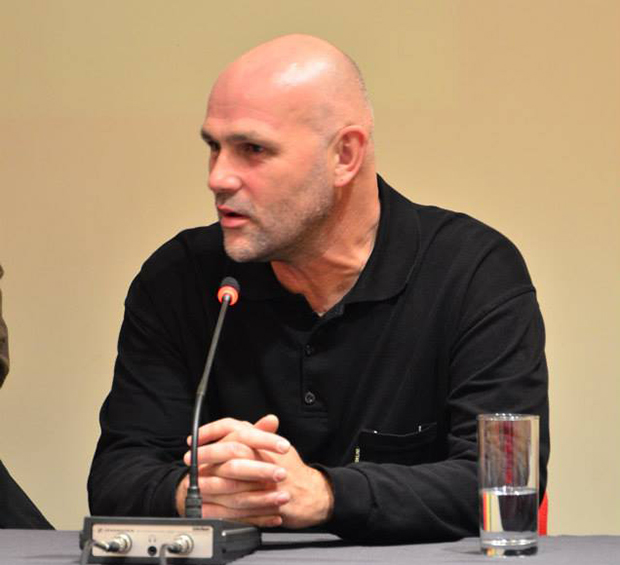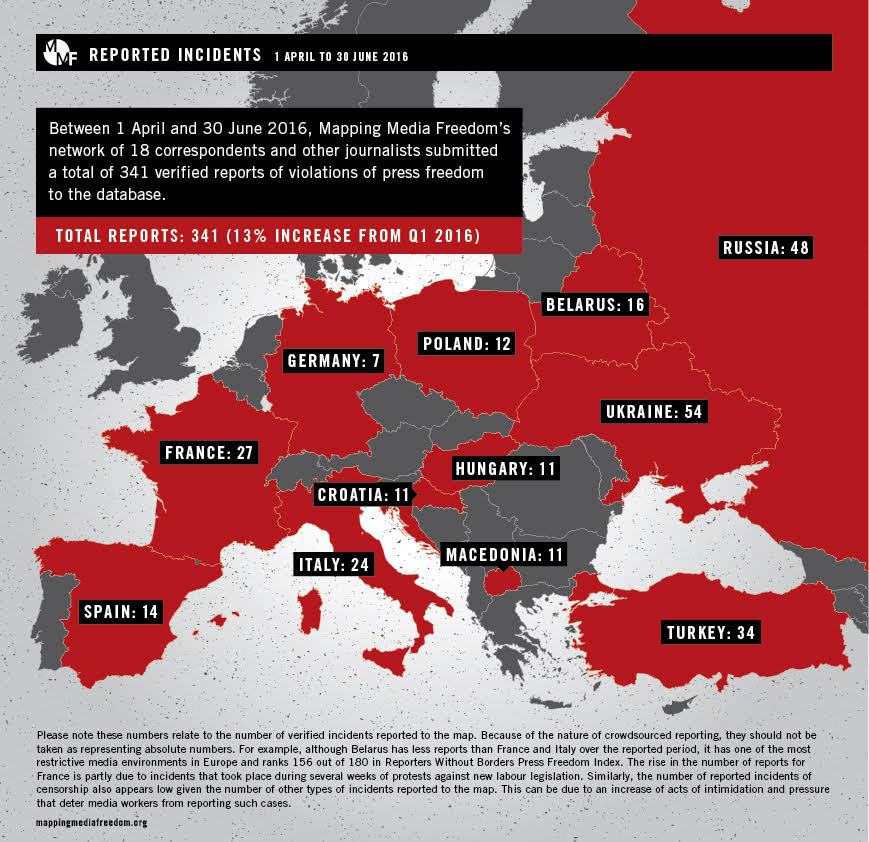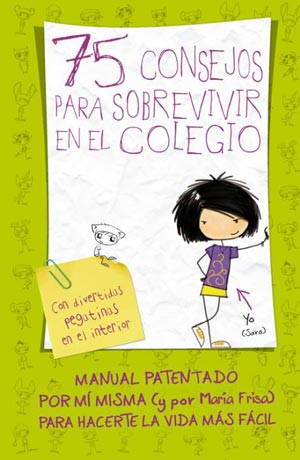2 Aug 2016 | Croatia, Europe and Central Asia, Mapping Media Freedom, mobile, News and features

Sasa Lekovic, seen here at a Mediacentar Sarajevo event in 2013, spoke to Mapping Media Freedom about the changes at Croatia’s public broadcaster, HRT. (Photo: Mediacentar Sarajevo)
The cancellation of three radio programmes on 4 July by Croatia’s public broadcaster marks the latest in a line of sweeping changes the network has undergone since January 2016.
Two of the three shows — Audio.doc and Hidden Side of the Day — were produced by award-winning radio journalist Ljubica Letinic, while the third — Morning at Third — was considered to the Croatian Radio-Television’s (HRT) most popular. N1, a regional broadcaster, reported that the programmes will be replaced with new shows that are more appropriate to the ruling elite’s ideology, including one on Christian spirituality.
The changes at HRT have gathered momentum since Croatia’s new conservative government came to power in January 2016. More than 70 media workers at HRT have been demoted or fired and more than 10 TV and radio shows have been terminated, according to the Croatian Journalists’ Association, which has strongly condemned what it calls the deliberate destruction of HRT.
In a written response to the cancellations, CJA president Sasa Lekovic said Croatia’s minister of culture Zlatko Hasanbegovic is the force behind the “culturecide” at HRT and that the changes are motivated by the ideological differences between the conservative government and the liberal subdivisions at the public broadcaster.
In an interview with Mapping Media Freedom, Lekovic said that the purges at HRT were pre-announced, even before the conservative coalition government came to power.
“The latest developments were already announced,” Lekovic said, referring to two interviews. The first with the former Prime Minister Tomislav Karamarko from 2015, and the second with Hasanbegovic from 2013.
“Karamarko in his last year’s interview for weekly Globus announced how citizens, and especially journalist, will need to behave once he comes in power,” Lekovic said. After this it was reasonable to expect that Hasanbegovic will be in charge for media, especially after his statement that the public broadcaster’s channels are being used to enact a “post-modern, neo-Yugoslav deconstruction of Croatian national and cultural identity”.
The Croatian Writers’ Society (HDP) have also condemned the recent trend of deep and substantial changes in the public broadcaster accusing the actual government of “silencing critical voices”. Lekovic told Index on Censorship that the public broadcaster was totally devastated during Karamarko and Hasanbegovic’s brief tenure.
The coalition government between conservative center-right Croatian Democratic Union (HDZ) and the center party Most, a political platform comprised of independent local majors, was formed after more than two months of hard and erratic negotiations. By its nature it was an unstable and shaky coalition. Hasanbegovic as a high-ranking member of HDZ shortly after seated in the chair of the minister of culture. Immediately he became publicly known for series of scandals related to ideological and historical revisionism. One of the biggest scandals was revealed by the Croatian daily Novosti. They published an article that was written by Hasanbegovic during his student days in which he expressed sympathy for the fascist Ustasha regime in World War II Croatia.
After months of turbulence and scandals Karamarko resigned from the leader position at HDZ in June amid a corruption scandal that involved his wife. But briefly before his resignation, as a part of the intergovernmental power games, Karamarko and his party HDZ, which was the main party in the coalition, opted for a no-confidence vote for the government. The end result was Karamarko’s resignation from his position as the leader of the main ruling party, the failure of the coalition between HDZ and Most and snap elections were called for 11 September.
Despite the fact that the government lost the confidence vote, the changes at HRT continue as the broadcaster is under HDZ influence. In March, while still in power, the centre-right government installed Sinisa Kovacic, then-head of the parallel journalist association HNIP, as an acting head of HRT. Since then he has continued to implement Hasanbegovic’s vison for HRT and to reshape the broadcaster’s programmes. Since Kovacic was supposed to be in that position for maximum six months, a period that is long overdue, negotiations on his successor are underway.
Letinic said she is skeptical about the future of Croatian journalism. “It doesn’t look good, both for journalism and journalists. The paradox is that even such journalism serves this country. It was the weekly Nacional that provoked the fall of HDZ-MOST government.”
2 Aug 2016 | About Index, Index Reports, Press Releases

Violence against journalists in Europe increased in the second quarter of 2016, reports submitted to Index on Censorship’s Mapping Media Freedom platform show, as a government crackdown in Turkey intensified and protests turned violent in countries from France to Finland.
“Europe is considered one of the safest places for journalists in the world. However, increasing concerns about national security in the region – coupled with creeping authoritarianism – is making it an increasingly difficult place for the media to operate freely and safely,” said Hannah Machlin, project officer for Mapping Media Freedom. “And the threats are not just coming from the usual suspects: 12 incidents of injuries to journalists occurred in France and in a number of these cases journalists appear to have been directly targeted by police.”
Between 1 April and 30 June 2016, Mapping Media Freedom’s network of 18 correspondents and other journalists submitted a total of 341 violations of press freedom to the database, a 13% rise over the first quarter of 2016.
Key findings from the Q2 report
- Two journalists were killed. Mohammed Zahir al-Shergat died as a result of gunshot wounds in the city of Gaziantep, Turkey; journalist and radio host Luka Popov from northern Serbia was found dead in his home in Srpski Krstur
- 60 incidents of physical assault were confirmed
- 45 criminal charges and civil lawsuits were filed
- Media professionals were detained in 41 incidents
- 80 verified reports of intimidation, which includes psychological abuse, sexual harassment, trolling/cyberbullying and defamation were recorded
- Work was censored or altered 15 times
- Media professionals were blocked from covering a story in 73 incidents
“The fight for the abolition of prison sentences for offences committed through the press is unfortunately still relevant in Europe and neighboring countries,” Christophe Deloire, Reporters Without Borders secretary general said. “In a climate of growing fear and suspicion, judicial persecution of journalists takes more and more diversified forms. The Turkish authorities continue to invoke the anti-terrorism law, the protection of state secrets or insults to the head of state to prosecute and imprison more journalists.”
“Journalists are beaten, intimidated, imprisoned and killed in the pursuit of telling a story, exposing the truth and informing the public. These courageous men and women are the vanguard for free speech, freedom of expression and, ultimately, a free and democratic society. We need to come together and fight for journalists’ safety and end impunity for crimes committed against journalists,” said Dunja Mijatović, the OSCE Representative on Freedom of the Media.
The report is available now at https://mappingmediafreedom.org/plus/ or as a PDF.
For more information, please contact Hannah Machlin, Mapping Media Freedom project officer at [email protected]
About Mapping Media Freedom
Mapping Media Freedom – a joint undertaking with the European Federation of Journalists and Reporters Without Borders and partially funded by the European Commission – covers 42 countries with a network of correspondents, including all EU member states, plus Albania, Azerbaijan, Belarus, Bosnia, Iceland, Kosovo, Macedonia, Montenegro, Norway, Russia, Serbia, Turkey, Ukraine and Vatican City. In September 2015 the platform expanded to monitor Russia, Ukraine and Belarus and in February 2016 into Azerbaijan. Each report is fact checked with local sources before becoming available on the interactive map. Since launching in May 2014, the map has recorded over 2,000 incidents threatening media freedom.
1 Aug 2016 | Europe and Central Asia, Mapping Media Freedom, mobile, News and features, Turkey, Turkey Uncensored

Turkish journalist Lale Kemal
It was a long Saturday night for all of us, at home and abroad, monitoring the worrisome developments around media freedom in Turkey. As if to confirm our fears, the night ended with the detention of six more journalists.
Defence lawyers expected the cases to be handled first thing Monday 1 August. But in a hasty move, journalists who wrote for the opinion section of Zaman — which stands at the epicentre of accusations of being part of the so-called “media leg of FETO terror organisation” — were taken to the Istanbul courthouse. After a long process, all were sent to jail.
The ruling, written under the extraordinary circumstances of emergency rule, reads like a severe restriction of the free word in particular and journalism in general.
The motivation for detention went, in a nutshell, that the six “prevented the investigation on the armed structure in their columns and via social media, and continued to write their columns even after the chief editor of Zaman daily, Ekrem Dumanlı, had fled the country”. Sigh.
There was no other mention than their expressed views — without going into any specifics in their content — and it was seen as sufficient by the judge to rule for jailing. Theirs will add to the pile of complaints from Turkey at the European Court of Human Rights.
It was the case of Şahin Alpay in particular which raised concerns among his colleagues in media and academia. One of the top liberal voices in Turkey, and known with respect among others in German social democrat, liberal and green political circles, Alpay is utterly frail with several health issues. The hopes of a release — albeit conditional — were high but crashed.
Yesterday, his family tried to contact him in prison, uncertain of any success.
All the six are from Turkish media’s liberal end of the spectrum. Among them are two female reporters that require attention. Lale Kemal, who was a commentator with Zaman, is an expert journalist on defence issues, with a long career. Her CV begins with Anatolian Agency, going on with Cumhuriyet daily, Hürriyet Daily News, Taraf and Today’s Zaman. She has been a stringer for Jane’s Defence Weekly for a long time.
The other, Nuriye Akman, has been a professional for 25 years. She worked with “mainstream” dailies in the 1990s and marked her reputation with long, Oriana Fallaci-style interviews both in print and TV. She is also the author of three novels.
Both women have been known to earn their keep only through journalism, like the others in this group of detainees.
Ali Bulaç, with a background as a theologue, is an independent voice within the conservative segments, often with disagreements and polemics with some others in the group. Ahmet Turan Alkan is regarded as a senior voice as part of the centre-right liberal flank in Turkey, popular for his ironic style. And Mustafa Ünal, who was Ankara Bureau Chief of Zaman, was for long active in Ankara, covering major political issues with a minimalist, simple writing style.
According to the regular monitoring done in daily basis by Platform for Independent Journalism (P24), these latest detentions mean that since the bloody coup attempt on July 15, 29 journalists are detained. In a total, there are now 62 journalists in jail in Turkey.
During the long, dark hours on Sunday, there was another message that added to the fears. A colleague, Ali Aslan, based in Washington DC, tweeted that the police had detained the wife of a journalist Bülent Korucu, former editor in chief of the weekly news magazine Aksiyon, now under arrest warrant but on the run. The police, Aslan claimed, threatened to keep her locked until her husband surrenders. Korucu’s son also confirmed this claim.
Dark Sunday indeed.
What fuels the concerns is that there is so far no assurance from the government about the respect for media freedom and whether or not the witch hunt will end anytime soon.
A version of this article originally appeared at Suddeutsche Zeitung. It is posted here with the permission of the author.

Turkey Uncensored is an Index on Censorship project to publish a series of articles from censored Turkish writers, artists and translators.
1 Aug 2016 | mobile, News and features, Spain
 In this guest post, the editor de Letras Libres España explains the uproar over of children’s book.
In this guest post, the editor de Letras Libres España explains the uproar over of children’s book.
More than 30,000 people have signed a petition to have 75 Tips to Survive School (75 Consejos para Sobrevivir en el Colegio) — a book by author María Frisa and published by Alfaguara in 2012 — pulled from the market in Spain.
The petition, hosted on Change.org, accuses the book of giving “toxic advice”, and of inciting sexism, disobedience and bullying. The publishing house said it will not withdraw the book, although the cover will emphasise that it is a work of fiction. The author issued a statement in which she regretted the misunderstanding surrounding her book.
The charge is old and familiar: Frisa is accused of corrupting the young. And the strategy is also old and familiar: intolerance and the literal mind posing as protecting the weak. We tend to think that those who restrict freedom of speech have evil motives. But they almost always act in defence of a noble cause, convinced of their good intentions.
The initial complaint came from @YaraCobaain, a Twitter user, on 23 July, and the petition was launched by Haplo Schaffer, a YouTuber. It was amplified by the media, which often merely repeated the petition’s ideas and points of view, thus distorting the contents of the book and presenting excerpts without explaining the context. It seems reasonable to assume that the vast majority of the signatories have not read the book. When Schaffer wrote the petition, he hadn’t either.
A careful reading of the petition on Change.org could have triggered some alarm: for example, the fact that it describes 75 Tips to Survive School as addressed to girls, as if in Spain books were segregated by gender (the book is not even directed towards a female reader: tip number 22, for example, is “finge ser simpático”, and the adjective “simpático” is in the masculine form). The campaign and some of the press presented the book as if it were a manual. Actually, and very clearly, Frisa’s book, which is part of a series, is a literary work of humorous fiction. The narrator, Sara, is a fictional character. She has irreverent opinions, describes tactics that are not presented as morally exemplary, and concocts plans which often go awry. The book’s tone is naive and childish. A reader might find the joke more or less funny, but it’s clearly a joke.
Regardless of the work’s genre, and though it might seem odd if someone does not like a book or its ideas they can choose not to buy it, and even not to read it. On top of ignoring the characteristics of the object that offends them, the petition’s signatories seem to overestimate the influence of literature on our behaviour and to underestimate the reading comprehension of the young – we can safely expect that it won’t always be as rough or twisted as the campaigners’. If we applied the same standard to every book written for children, or to every work that may fall into a child’s hands, we may have to do without a few, from Tom Sawyer to Matilda. We would probably have to withdraw The Simpsons and Robert Louis Stevenson as they would be considered a peril for the young, and I don’t know what we’d make of the Bible. Literature would lose complexity, richness, humor and the ability to help us understand different viewpoints and behaviours.
Although the campaign has denounced what it says is an incitement to bullying, it has harassed the writer and has intimidated the publishing house. In the book’s page on Amazon, the vast majority of comments were made after 23 July 2016, and they contain the ideas of the petition. Murcia, a region in Spain, has called for the withdrawal of the book. The author has claimed that she has received death threats. When Frisa published her statement, Schaffer, who has later distanced himself from the threats and insults of some campaigners on Twitter and on a commented reading of the novel on YouTube, wrote: “You are disgraceful and a coward, @MFrisa. I have been extremely polite so far, but enough is enough.” He tweeted to the publishing house: “If you want to present a coherent explanation, @Alfaguara_es, you still have time. If not, face the consequences, they won’t be nice.” Interestingly, in the explanations of some of his YouTube videos Schaffer defends the importance of freedom of speech.
In The Art of the Novel, Milan Kundera writes: “The word agélaste: it comes from the Greek and it means a man who does not laugh, who has no sense of humour. Rabelais detested agélastes. He feared them. He complained that the agélastes treated him so atrociously that he nearly stopped writing forever”
In 2016, 30,000 people in Spain have demanded the banning of a children’s book that in most cases they haven’t read. The petition states: “It is intolerable that such content is published, publicised and disseminated.”
Frisa has had the support of her publishing house, as well as some colleagues and members of the literary world. But one of the most striking things about this case is her helplessness before hysterical vigilantes and the stampede of people who have more energy to be indignant than time or desire to be properly informed. It’s partly explained by the dynamics of social networks, which are difficult to stop. But the role of many journalists has also been regrettable. Firstly, their job is to report events as they are, and in this case many have failed to do so. Secondly, those whose living depends on freedom of speech should be wary of this kind of phenomenon: armed with the best intentions, one day they might also come to shut you up.
A version of this article originally appeared in Letras Libres.





 In this guest post, the editor
In this guest post, the editor